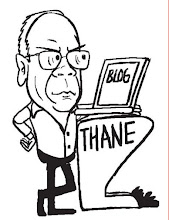Why is it that the debate in parliament earlier
this week on black money does not carry conviction with the people?
This is a question that is asked not
rhetorically, of the people who voted the debaters to parliament.
It is directly at the MPs.
It does not. And here’s why.
Note for instance, the wording of the
adjournment motion is a dead giveaway. It centred on “the situation arising out
of money deposited illegally in foreign banks and action taken against guilty
persons". It was limited to what had been spirited away and squirrelled
away overseas in tax havens.
There was no mention of the money that has
sidestepped the legitimate economy and runs on its own steam, large enough, we
have been told time and again, to add one or two percentage points to India’s
GDP growth every year. This is an economy that has not – and perhaps is not –
easy to assess for size.
And not all of the money that escapes the
taxman has gone overseas. Even if the money that has been shifted abroad is
huge, that which lingers in India is perhaps larger. They may not always be
big-ticket numbers in each individual case. Together, what the policeman takes,
what the tahsildar steals from you for giving you your legitimate due, what the
municipal contractors grabs and shares with the petty politician would add up
to something that can choke the horses in all cavalries of your and present.
What about that?
It is nobody’s case that what lies hidden
outside of India ought to be bypassed and focus shifted to the internal
accruals of black money. Since this domestic loot remaining within India is
what is running things in the country – businesses to politics. This is what is
queering the pitch for the common, ensuring that he is at a disadvantage; that
he lies lower on the rung of citizens because he cannot pay the extra buck
which the black system demands, riding on the legit.
Anna Hazare’s campaign caught the fancy of
the middle classes because he knows that the big businesses have been corrupt
much as the small babu is except in terms of numbers of currency notes and
their denominations. It is this that is hurting the common man and it is here
the politician steps into the picture. He wants to amass and he involves the
bureaucrat. He asks the patter to collect for him or he collects from a client
and asks the bureaucrat to bend the rule, hasten a process or wink at an
irregularity.
That is why when politicians talk about
corruption, which is not just near-endemic but endemic, people are not amused.
People believed some in the past, for instance propelling V P Singh on an
anti-corruption plank which put Rajiv Gandhi at the centre of it. The target
remained Rajiv Gandhi, not corruption. If a government could be brought down,
citing Bofors as a symptom of a deep-rooted malaise, others who followed did
not remain saints. Each of them fought elections; each of them needed cash – as
distinct from legitimate money – to do better the rivals at the hustings. It
does not lie in their mouth to talk about cleansing the system.
Finance Minister Pranab Mukherjee’s
assertion that neither he nor his party protected black money holders too would
was incredulous. What gave up the game was his saying when black money was
accumulating since 1948, “what was the hurry” now? In such a background, his
perfectly valid justification for due process since international treaties were
involved, and that he cannot send forces to recover the black money overseas
is, to the common man, just so hot air. The anxiety shown by Advani is matched
by all those who pay taxes. It must have shocked them when Manish Tewari put a
figure to it: one trillion in foreign banks. Shashi Tharoor referred to it
being, on someone’s estimate, that it was 20 times India’s GDP.
The system is so far gone into disrepute
with the citizens that any suggestion that the names were being withheld
pending full process to secure the assets raised eye brows. Can a corrupt
revenue system be trusted to keep confidences when oodles of money were
involved? After all, this system works on quid pro quos and a helpful hint
means a lot to the tax man.
When ministers sitting behind Mukherjee
smiled – probably others did too, but the Lok Sabha TV did not pan at that
moment – when he said he did not find a single MPs name on the list of people
holding black money. Ask the sceptical people what they think. It unlikely that
they would agree with the honourable Finance Minister. For, the trust deficit,
notwithstanding claims to good deeds, is so enormous, that the debate may as
well have not been held at all.
That is the common man’s logic, or the
worm’s eye view.
Chew on that.

No comments:
Post a Comment